Hunting for Ruslan cargo planes. Will Russian An-124 aircraft stuck in Germany and Canada join Ukraine's fleet?
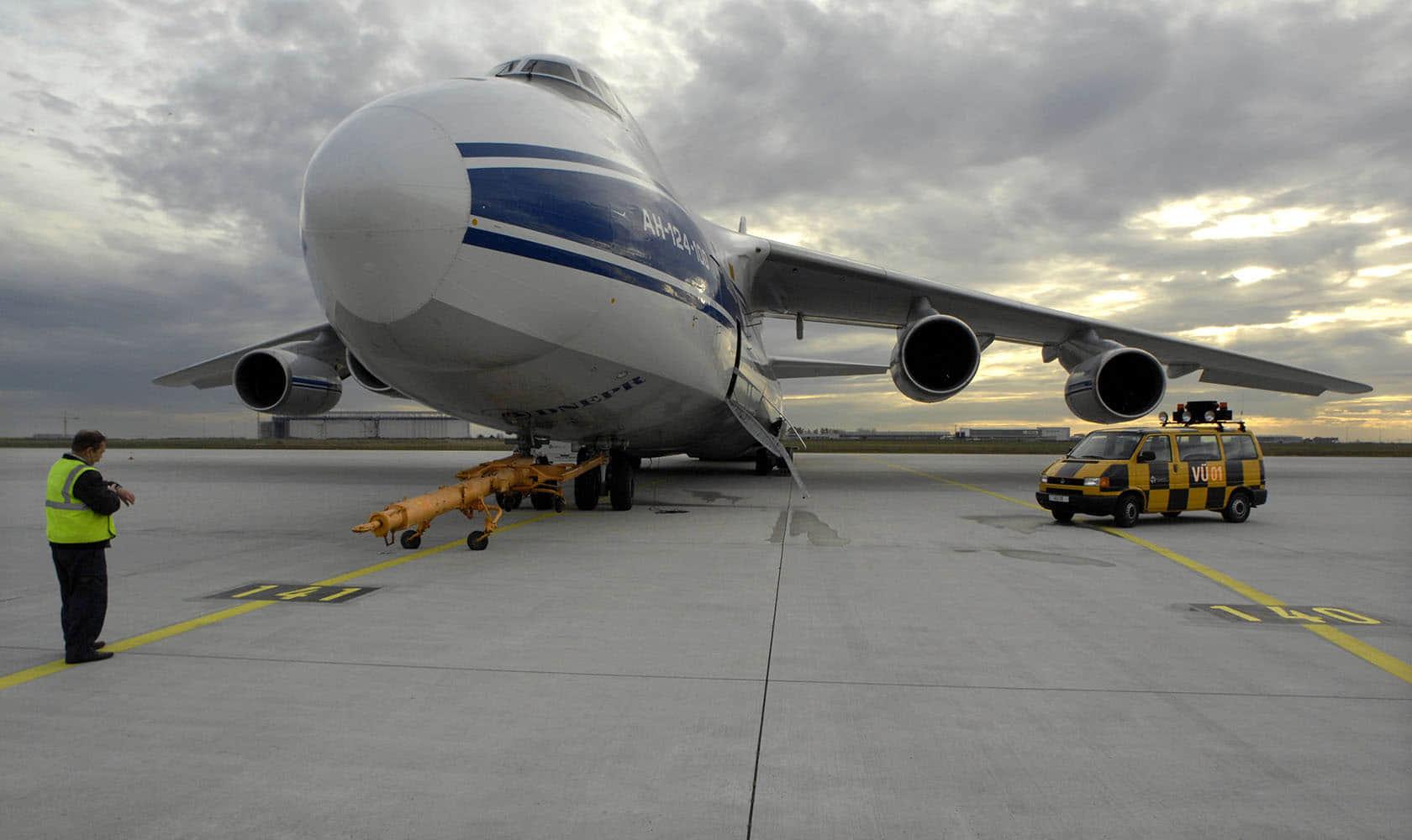
Russian Ruslan transport jets could work for Ukraine and NATO rather than gathering dust in airports in Canada and Germany.
What's happening to the Antonov An-124 aircraft belonging to the Russian cargo airline Volga-Dnepr, stuck in Canada and Germany, and what are Ukraine's odds of replenishing its Antonov planes fleet with them?
"Steer straight ahead, it's still far away. Towards the Volga-Dnepr [aircraft]."
"To where our soon-to-be plane is?"
"Yes, yes, affirmative."
This dialogue occurred in May between Ukrainian cargo airline Antonov Airlines pilots during a landing in Toronto. An An-124 Ruslan, seized from its owner, the Russian company Volga-Dnepr, has been idle at this airfield for two years.
The size and power of this aircraft are second to none in the global cargo market. A total of 55 Ruslan jets were produced in Soviet times, half of which are still in active service. After the collapse of the USSR, Ukraine’s state company Antonov inherited seven of these planes.
The company, together with the Ukrainian Justice Ministry and the Foreign Ministry, is doing everything possible to significantly increase Ukraine's An-124 fleet by confiscating one Russian Ruslan in Canada and three more in Germany.
So far, these Russian planes have taken up space at airfields, gathering dust and parking debts. However, Ukraine can put them to work on recovering Ukraine and helping strengthen the defence capability of the whole of Europe. Unique Ukrainian aircraft have been carrying military cargo for NATO for many years. As Europe is rearming, the demand for such transport has increased significantly. But will the planes be confiscated?
Back to the home harbour
The fact that the Russian An-124 Ruslan ended up in Canada at all was a matter of sheer luck. At the time, the full-scale war had been going on for three days, and the West was preparing to impose sanctions on Russia. However, the private company Volga-Dnepr decided to take a chance and transport Chinese-made COVID-19 rapid tests to Canada and get back.
The plane landed at Toronto International Airport on 27 February. A couple of hours after it landed, Canada closed its airspace to Russian-flagged aircraft. The plane will not be able to take off until the sanctions are lifted. The Russian crew of the An-124 was told to pack their bags and go home while the Ruslan itself remained in Canada.
All the owner of this Ruslan can do now is pay money for parking and hope for the war to be over as soon as possible.
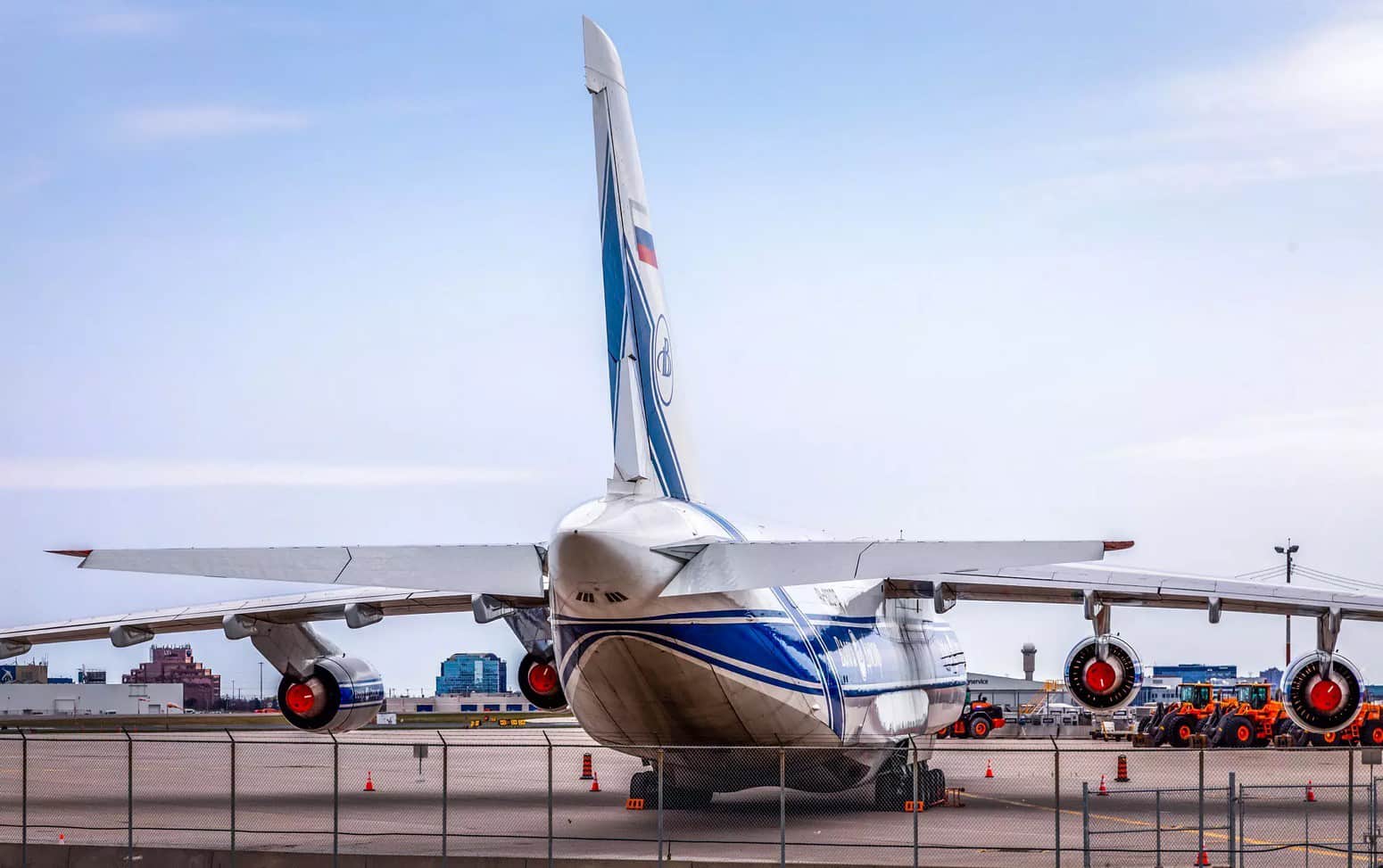
The Canadian news website blogTo says Volga-Dnepr has to pay CA$1,065 a day for the aircraft's downtime, and the debt for parking has now reached CA$560,000.
The same fate befell three other An-124s from the Russian company, this time in Germany. Two of them landed in Leipzig shortly before the Russian invasion of Ukraine, and another one has been gathering dust there without engines for some time.
The German air hub also generates hefty parking charges, with the total amount already exceeding US$1 million. However, Bild says the Russians are covering the bills. Volga-Dnepr likely hopes that Germany will keep their planes until the war’s over, so the company is paying for parking regularly and not running into any legal action.
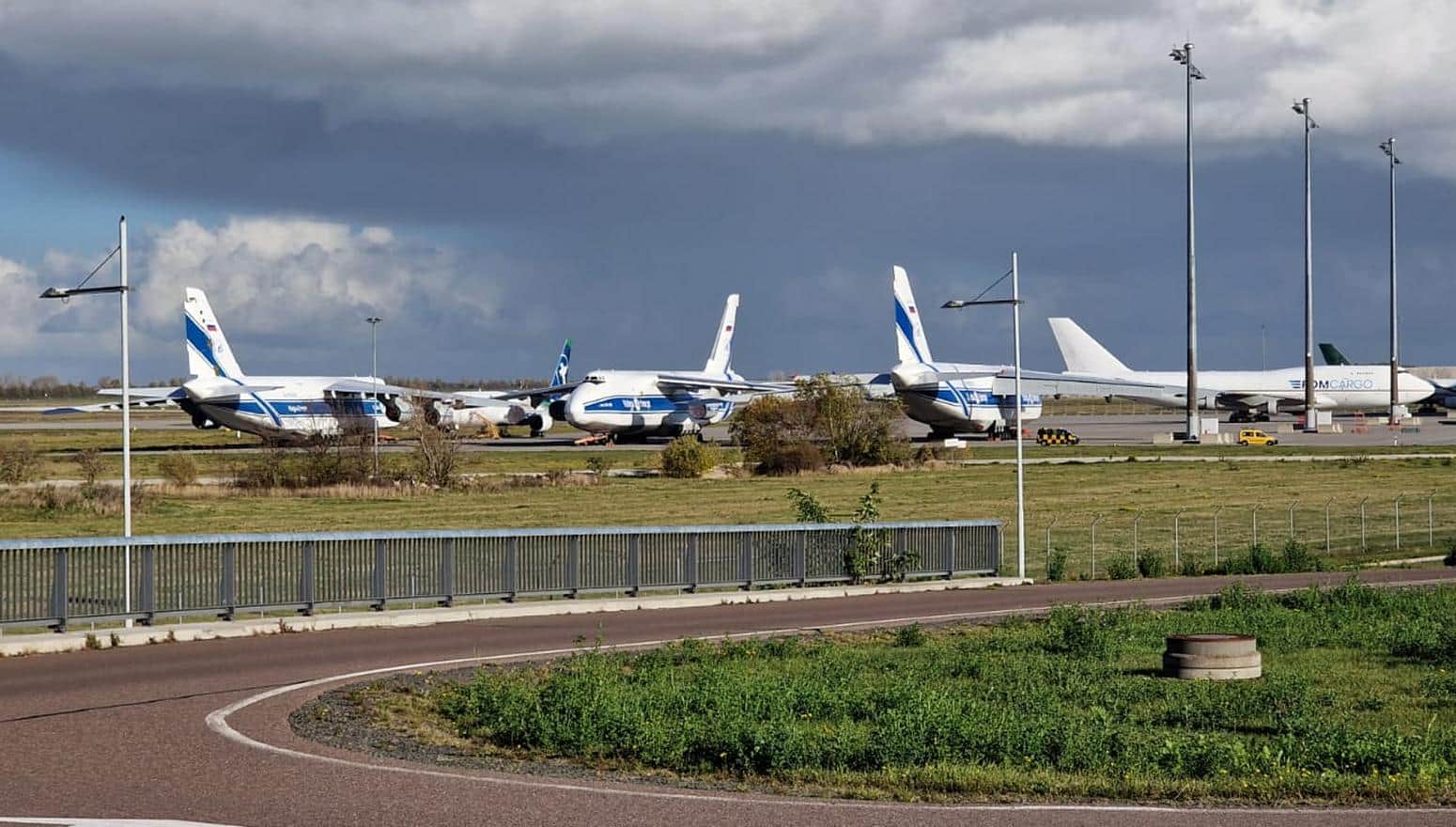
Ukraine instantly set its sights on the planes in Canada and Germany.
Back in April 2022, the Sviatoshynskyi District Court of Kyiv ordered the seizure in absentia of all 12 Ruslans owned by Volga-Dnepr. Finding legal grounds for this took little time since the court's ruling was related to a long-standing dispute with the Russian airline.
However, the Russian cargo airline Volga-Dnepr fell out with Antonov and extended the service life of its aircraft by itself in 2018. Antonov's lawyers consider the Russian certificate to be a forgery and caution that it could pose a threat to flight safety around the world. This conflict became the basis for the seizure in absentia of the Russian aircraft and their transfer to the Ukrainian state-run Asset Recovery and Management Agency (ARMA).
The most challenging part is to prove all of this to Ukraine's Western partners, confiscate the Ruslan aircraft abroad, and hand them over to Ukraine. Alongside the legal case mentioned above, Ukraine also emphasises its moral right to receive these aircraft as compensation for the severe damage caused by the Russians.
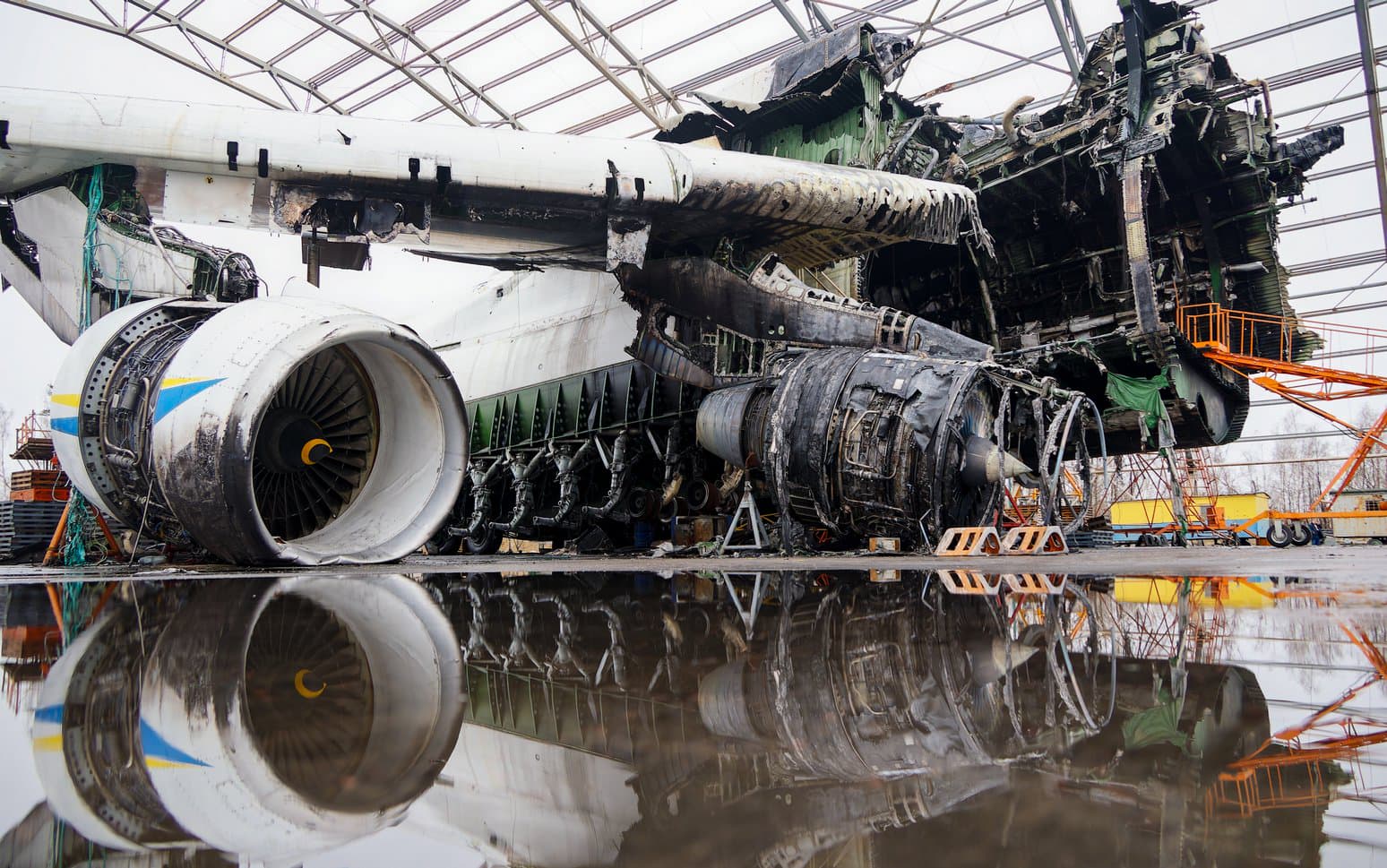
Confiscating the Ruslan will be simpler in Canada, as it is the only Ukraine-allied country to have passed a law to confiscate Russian property and transfer it to Ukraine. Canada imposed sanctions on Volga-Dnepr this spring and issued a warrant for the seizure of the aircraft on 10 June. On the same day, Canadian Prime Minister Justin Trudeau publicly announced the start of the process of confiscating this asset.
The political will for this decision exists; however, the confiscation itself has yet to take place, although the media have mistakenly reported this. The EP says only pre-trial procedures and the filing of a lawsuit are underway.
The duration of the trial and appeals is unknown, as no case involving Russian assets has been resolved in Canada under the new law. Another question mark is the form in which Ukraine will receive the asset.
"Under the Canadian confiscation law, the subject of transfer in favour of Ukraine may not be the confiscated property itself, but an appropriate amount not exceeding the net revenues from its sale. And the funds may then be transferred to the victims," said Iryna Mudra, Ukraine's Deputy Minister of Justice.
She said the likelihood of the aircraft itself being transferred to Ukraine, rather than the money from its sale, remains unknown. Further consultations with the Canadians are ongoing.
Finding a buyer for this aircraft might not be easy. Judging by the contract for purchasing the UAE's An-124 in 2004, such a plane may now be worth around US$60 million, depending on its age. Besides Russia and Ukraine, there are only two current operators of the An-124 Ruslan in the world – Azerbaijan and the UAE – each owning one aircraft.
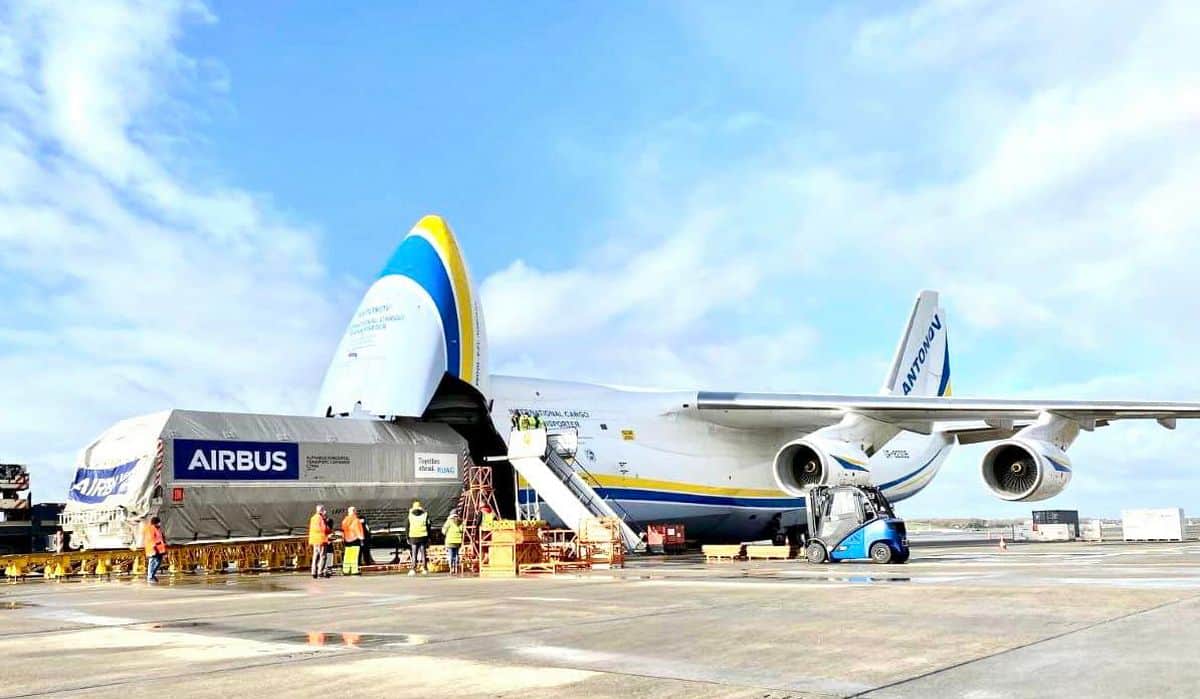
Realising that the confiscation of these planes, albeit tentatively, had made some headway, the Russians issued threats. Russian diplomats referred to the possible confiscation as a robbery and threatened retaliatory measures.
However, it's the Western countries that should, in fact, be responding, since Russia actually began confiscating hundreds of aircraft owned by European leasing companies last year.
"An effective response from the EU would help compensate both Ukraine and the affected Western companies. In addition to Ruslans, seven more Volga-Dnepr planes worth hundreds of millions of dollars are stuck at German airfields, and they could be confiscated in favour of the victims," said Professor Oksana Yurynets, Doctor of Economics.
Relevant laws must be passed to make this happen. Germany has not yet passed legislation to confiscate Russian assets for waging war. Germany can only seize property for violations of the country’s criminal laws.
Deputy Justice Minister Iryna Mudra said the Russian planes could theoretically be confiscated for violating international certification rules, which, as noted earlier, is why Antonov filed a lawsuit. The aircraft may be seized in favour of the German government in a criminal case and only then transferred to Ukraine.
EP's sources have learned that the management of Ukraine's Antonov company asked the Ukrainian Foreign Ministry in April this year to find ways to confiscate Russian aircraft in Leipzig, as at that time, even the stance of German law enforcement agencies on this issue was still lacking.
Further progress is likely to depend on the political will of the German authorities. The EU has not yet introduced sanctions against Volga-Dnepr so far.
Antonov's request also mentions that the Russian Ruslan aircraft may be pledged to the Russian state-owned Sberbank. However, the Russian state bank's potential claim of ownership of these planes should not prevent the confiscation, as Sberbank itself is under Western sanctions.
What can these aircraft do for Ukraine and the EU?
Let's imagine the best-case scenario: all four aircraft are handed over to Ukraine in the coming years and then to Ukrainian Antonov Airlines. Everyone wins in this case except Russia.
Russia’s Volga-Dnepr and Ukraine’s Antonov had a joint contract to transport NATO military cargo under the SALIS programme for many years. However, the Russians quit the project in 2018, and their planes have been banned from flying in the G7 countries since 2022.
France, Germany and many other countries need a reliable cargo carrier with a substantial fleet of aircraft, as finding a transport plane for heavy military and humanitarian cargo can be challenging. And here, Antonov Company can lend a hand by taking over this transport.
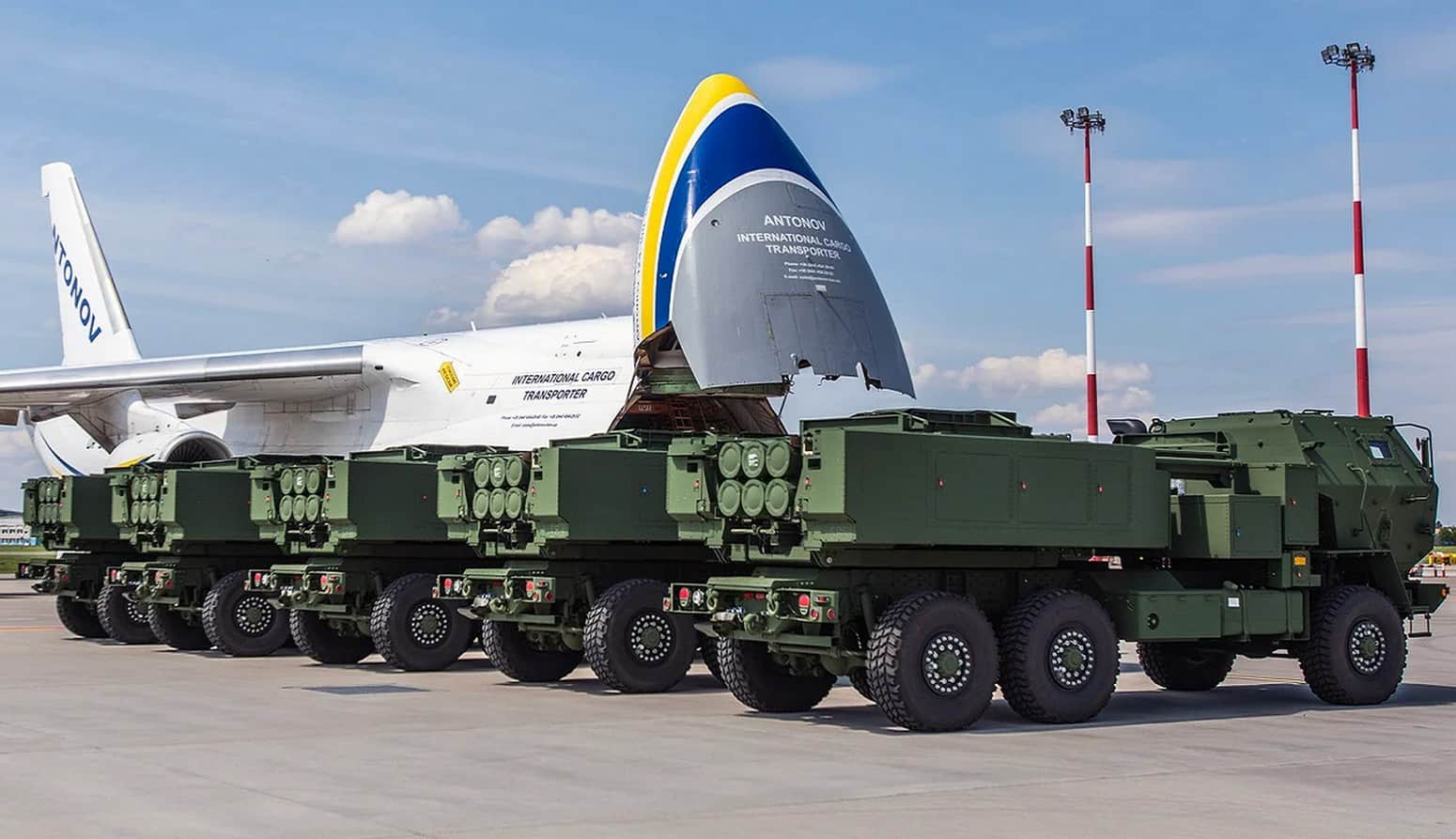
Antonov currently has 7 An-124 aircraft. Five are based in Leipzig and continue to fulfil NATO orders and civilian flights. The confiscation of Russian Ruslan planes could increase the Ukrainian fleet of An-124s and, accordingly, the fleet of large transport aircraft for European armies.
Ukrainian An-124s have always been rescue aircraft for "dark times". For example, they carried generators and transformers to the US after a hurricane in 2018, medical equipment in 2020, and German troops from Afghanistan in 2021.
As military tensions rise not only in the European region but also in the EU's African and Asian partner countries, additional transport capacity in Europe would definitely be helpful. After all, these aircraft could also carry weapons for the Ukrainian Armed Forces to Polish airfields.
Furthermore, airlines are also the primary source of funding for Antonov. Each An-124 Ruslan is capable of generating several million US dollars in profit per year. The acquisition of Russian aircraft worth over US$240 million would partially cover the company's losses caused by the Russian military aggression.
The Russians destroyed US$1 billion worth of infrastructure at Antonov's base in Hostomel, Kyiv Oblast. The company needs to raise funds to repair the damaged An-12, An-22 Antei, An-28, An-132 and An-124 Ruslan aircraft and to rebuild the world's largest plane, the An-255 Mriya.
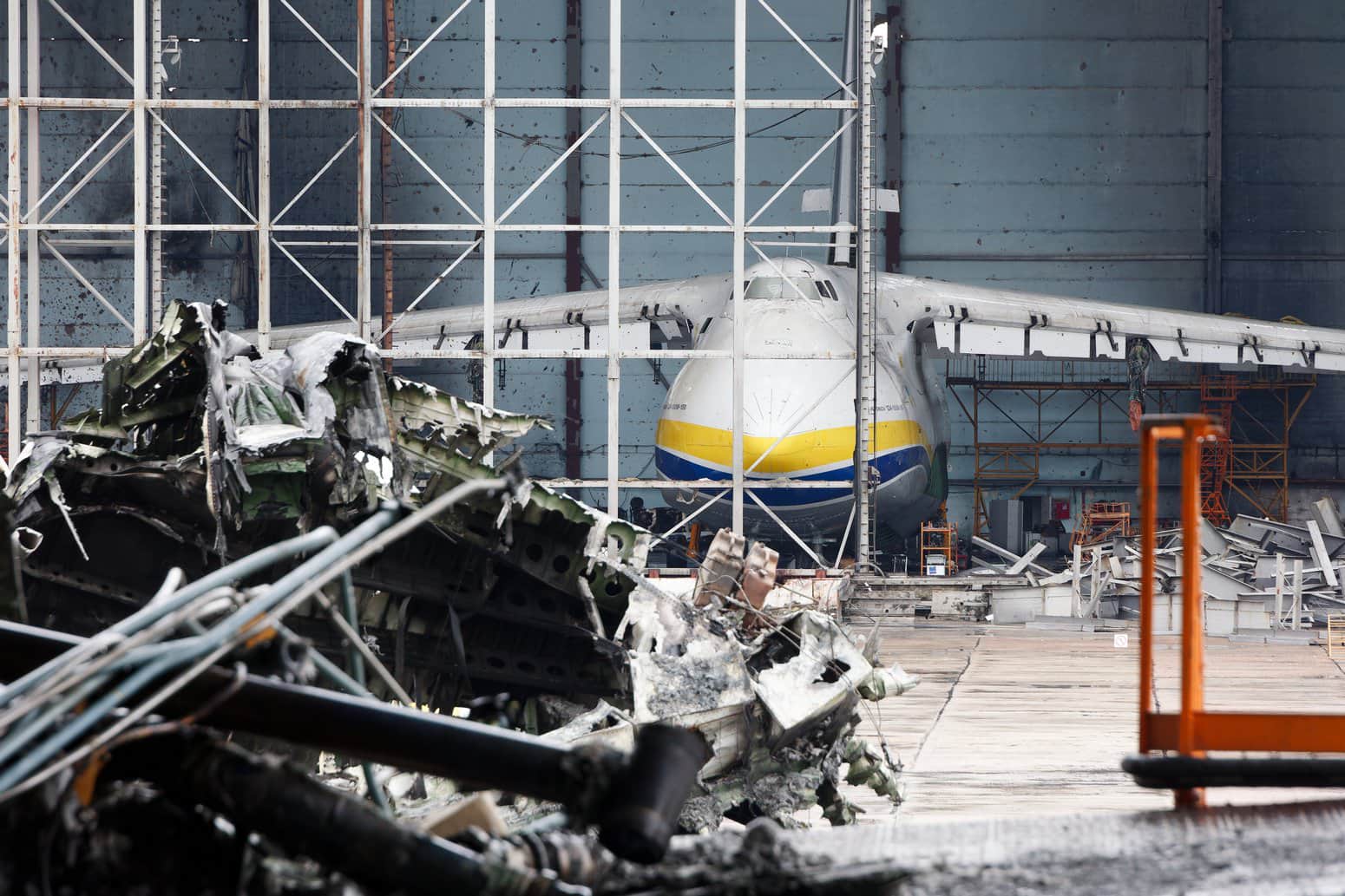
Confiscation in favour of Ukraine and becoming logistical support for NATO is a much better fate for the aircraft than if they were left to rust on airfields.
To remain fit for such flights, An-124s must be inspected and repaired regularly, while the Russian Ruslans have been idle in the open for two years. The planes can serve until 2040, but only if they are put back into service in time.
How much longer do we have to wait?
Confiscating the planes would set a precedent for the recovery of other Russian property in favour of Ukraine, but the problem still rests on the lack of legal mechanisms for this, similar to Canada's.
The US, EU, and UK still have to develop various legal mechanisms to allow Ukraine to at least claim certain property. Such selective "confiscation" is unpromising, as it requires a lot of preconditions, such as the presence of criminal offences by the asset owner or the ability to prove them in court.
Russian businessmen simply do not violate enough European laws to get even at least a quarter of their assets confiscated this way. The rules need to be changed, and new mechanisms targeting the Russians should be implemented rather than looking for loopholes in the existing ones.
The Ukrainian Foreign Ministry says Germany joined the establishment of the Register of Damages in May. However, this will have no effect unless hundreds of billions of dollars are found to compensate the victims of Russian aggression.
Meanwhile, massive Russian planes remain parked at airfields, and oligarchs' yachts stay moored, losing their value and reminding passers-by of their government's tolerance towards the Russian invaders’ property.
Translation: Artem Yakymyshyn
Editing: Susan McDonald
This article was written as part of an ANTS project titled Russian Assets as a Source of Recovery of the Ukrainian Economy, implemented in cooperation with the National Democratic Institute (NDI) and with financial support from the National Endowment for Democracy (NED).